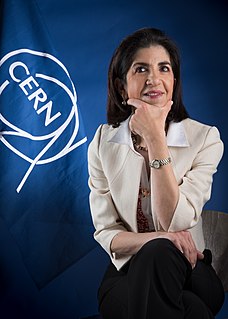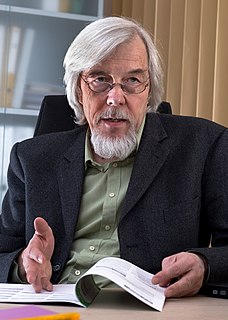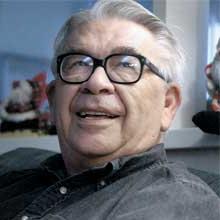A Quote by Fabiola Gianotti
CERN is a centre of scientific excellence and a source of pride and inspiration for physicists from all over the world, a cradle for technology and innovation, and a shining concrete example of scientific cooperation and peace.
Related Quotes
Nothing gives us greater pride than the importance of India's scientific and engineering colleges, or the army of Indian scientists at organizations such as Microsoft and NASA. Our temples are not the god-encrusted shrines of Varanasi, but Western scientific institutions like Caltech and MIT, and magazines like 'Nature' and 'Scientific American.
Geneva has a long history of hosting international organizations, which is part of the reason why CERN is here. CERN has signed agreements with the ITU, WIPO and the WMO. At first sight, there may not seem to be much common ground between CERN and, say, the World Meteorological Organization, but scratch the surface, and you'll soon find a common thread. All of these organizations have a vocation to stimulate technological innovation, and together we're stronger.
Scientific and technological progress themselves are value-neutral. They are just very good at doing what they do. If you want to do selfish, greedy, intolerant and violent things, scientific technology will provide you with by far the most efficient way of doing so. But if you want to do good, to solve the world's problems, to progress in the best value-laden sense, once again, there is no better means to those ends than the scientific way.
I have always thought it a great privilege to have as my colleague in the Palit Chair of Chemistry such a distinguished pioneer in scientific research and education in Bengal as Sir Prafulla Ray. It has been invariably my experience that I could count on his cooperation and sympathy in every matter concerning my scientific work.
Hitherto the principle of causality was universally accepted as an indispensable postulate of scientific research, but now we are told by some physicists that it must be thrown overboard. The fact that such an extraordinary opinion should be expressed in responsible scientific quarters is widely taken to be significant of the all-round unreliability of human knowledge. This indeed is a very serious situation.
It is well known that Russia has many interesting and promising developments in the military-technical sphere. We are ready to deliver the needed equipment and ready for joint cooperation in arms production with Brazilian specialists. This is an area that is very closely linked to high technology in general. In this respect, we hope to develop closer cooperation between the scientific communities in our two countries.
[Science fiction is] that class of prose narrative treating of a situation that could not arise in the world we know, but which is hypothesised on the basis of some innovation in science or technology, or pseudo-science or pseudo-technology, whether human or extra-terrestrial in origin. It is distinguished from pure fantasy by its need to achieve verisimilitude and win the 'willing suspension of disbelief' through scientific plausibility.
Through scientific discovery and technological innovation, we enlist the forces of the natural world to solve many of the uniquely human problems we face - feeding and providing energy to agrowing population, improving human health, taking responsibility for protecting the environment and the global ecosystem, and ensuring our own Nation's security. Scientific discoveries inspire and enrich us, teaching us about the mysteries of life and the nature of the world.
As time passed I became an avid reader of popular scientific books, wanting to know as much as I could about the world in which I lived. Gradually I began to see a pattern of nonsense in much scientific writing. Scientific explanations given regarding the origins or functioning of various phenomena simply didn't make sense.
































